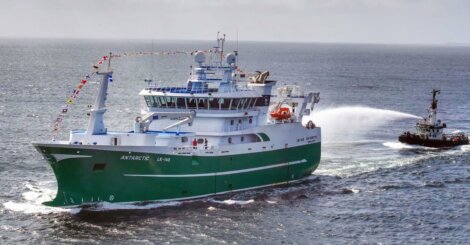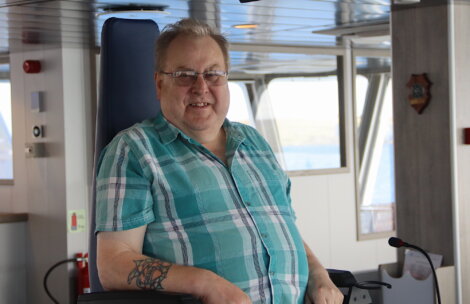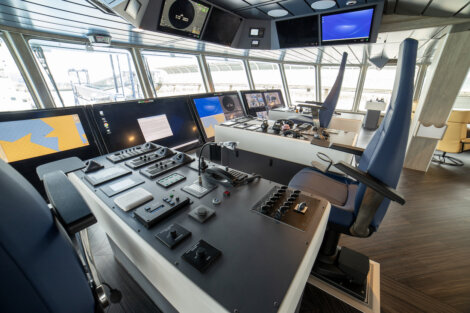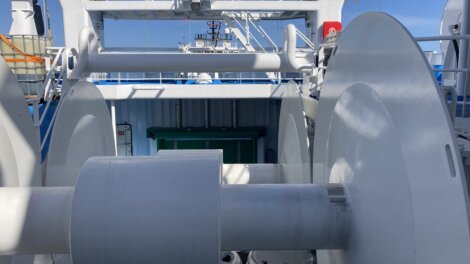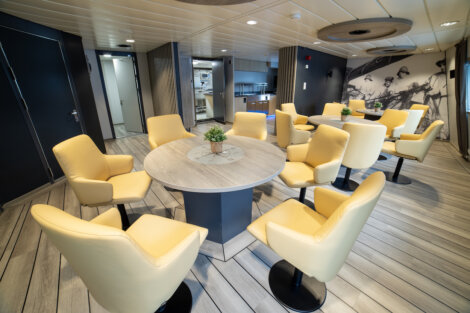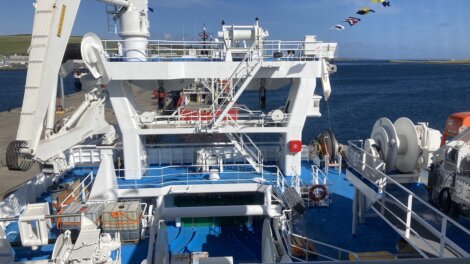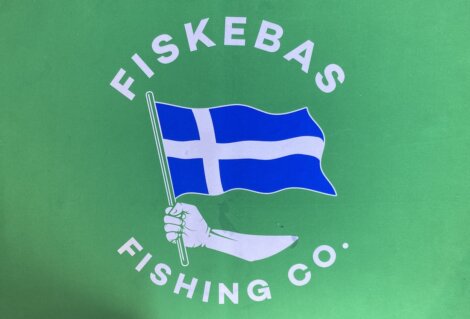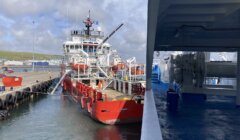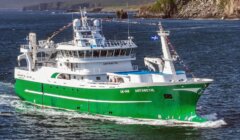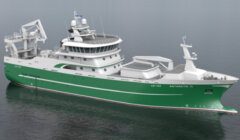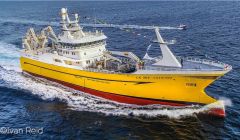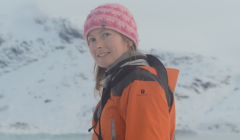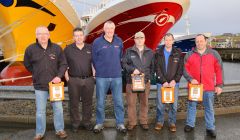Marine / Arrival of new Antarctic completes renewal programme of local pelagic fleet
JOHN William Stewart, skipper of Shetland’s latest addition to its pelagic fleet, has expressed his confidence in the future of the industry.
During a tour of the new Antarctic, berthed at Mair’s Pier, the veteran fisherman spoke about his belief that only by constantly renewing the fleet could the industry stay profitable and ahead of the game.
The new midwater pelagic trawler, designed by Skipsteknisk of Alesund and built for the Fiskebas Fishing Company, arrived at Lerwick on Wednesday after a three day trip from the Zamakona shipyard in Bilbao.
The 69.6 metre vessel replaces the 20-year-old Antarctic II which was sold to new owners in Norway in October last year.
The new vessel in her traditionally green livery is the first in Scotland to comply fully with new environmental regulation for large marine engines. The vessel carries 30 tonnes of AdBlue – a diesel exhaust fluid – to reduce emissions of nitrogen oxides.
Powered by a 5,400kW MAN main engine, the new vessel is at 15.2 metres beamier than her predecessor, and has cargo tanks to hold up to 2,000 cubic metres of fish.
The vessel has been finished to a high standard and provides all the mod cons one has come to expect in the industry today, including a television room and a separate cinema. There is spacious accommodation for up to 14 crew, but the vessel usually operates with a crew of 13 local men.
The arrival of the new Antarctic completes an eight-year renewal programme that saw all of Shetland’s eight midwater trawlers be replaced with brand new state-of-the-art-vessels between 2016 and 2024.
Stewart said updating vessels with the newest technology was essential. He said the way the fish is being caught had not changed, but catch handling and the way the fish is being kept fresh are where the focus lies these days.
Become a member of Shetland News
“She will be able to keep the fish better. It is an upgrade, the same as a new phone,” he said.
“There is a freezing plant on board which cools seawater down to nearly minus two degrees, and that is circulating through the tanks all the time. It keeps the fish in prime condition.”
The skipper added: “When I started working in pelagic fishing there was no freezing.”
John William Stewart and partners bought the Fiskebas, a Norwegian purse seiner in the 1980s, before replacing her in 1997 with a second-hand vessel from Ireland, the Antarctic.
Antarctic II was built in 2004 and served the company for almost 20 years.
“The last boat we got was the Antarctic II, but this boat, we thought, we just call her the Antarctic,” Stewart said. “Antarctic III does not have the same ring to it.”
The 69-year old skipper added: “It you don’t renew your boats the fishing industry will collapse.
“Hopefully, for the people who come behind me this vessel will be a good foundation to start, and to renew again when they need to.”
Stewart said he hoped the vessel would be ready to start fishing before the end of the month.
“We will be going to the herring season once we get our gear on board; that will take all next week,” he said. “And then, hopefully first catching our herring quota, and then start at the mackerel after that.”
However, it will be a challenge, he added, because they have not been out fishing since last October, and all the vessel’s herring and mackerel quota is still there to be caught.
And with the new obligation of landing 40 per cent of the catch in Scotland this year, and 55 per cent next year, there is some uncertainty how the prices will shape up.
“The processors know we will have to land into Scotland, so they will be able to set any price they want, the competition from Norway has gone,” Stewart said.
Executive officer with the Shetland Fishermen’s Association, Sheila Keith, said the SFA was seeking further discussions with the Scottish Government to ensure that the obligation of landing into Scottish ports did not impact on the viability of vessels.
She added that the arrival of the new Antarctic was another testament of the high level of confidence in the industry.
“The arrival of the Antarctic means a lot for Shetland. We still have privately owned fishing vessels here. Investments are being made by Shetland families in the islands’ own fishing fleet,” Keith said.
“The confidence is definitely still there and that is what we are pleased about for the industry, and it thanks to vessels like this and the sustainable way of fishing that we have healthy stocks.
“The most important thing is there is still fish to catch and that stocks are healthy for mackerel, herring and blue whiting.”





